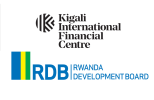Mining has been a cornerstone of Africa’s economy for decades. With rich deposits of minerals like gold, diamonds, cobalt, and platinum, African countries have benefited tremendously from the mining sector. However, the environmental and social impacts of traditional mining practices have raised concerns. Today, the focus is shifting towards sustainable mining practices that can ensure the longevity and health of both the environment and local communities.
In this article, we will explore the importance of sustainable mining practices in Africa, current efforts being made, and how these practices are shaping the future of the industry.
The Importance of Sustainable Mining Practices
Mining, while economically beneficial, has historically been detrimental to the environment. Open-pit mining and other extraction methods can lead to deforestation, soil erosion, and contamination of water sources. These environmental impacts can have long-lasting effects on local ecosystems and communities.
Sustainable mining practices aim to minimize these negative impacts by implementing more environmentally friendly techniques and ensuring that mining activities benefit local communities economically and socially. By focusing on sustainability, the mining industry can help preserve Africa’s natural beauty and resources for future generations.
Economic Benefits
One of the primary reasons for adopting sustainable mining practices is to ensure the long-term viability of mining operations. By using methods that reduce environmental harm, companies can continue to operate in the same areas for longer periods. This not only ensures a steady stream of revenue for the companies but also provides consistent employment opportunities for local communities.
Social Impact
Sustainable mining practices also focus on improving the social conditions of local communities. This includes providing fair wages, ensuring safe working conditions, and investing in local infrastructure such as schools and hospitals. By doing so, mining companies can help uplift the communities in which they operate, leading to overall social and economic development.
Current Sustainable Mining Practices in Africa
Various African countries are making strides in adopting sustainable mining practices. These efforts are often a collaboration between governments, non-governmental organizations (NGOs), and mining companies.
Environmental Management Systems
Many mining companies are now implementing Environmental Management Systems (EMS) to monitor and reduce their environmental impact. These systems include measures such as:
- Reducing water usage and recycling wastewater
- Implementing energy-efficient technologies
- Reforestation and land rehabilitation efforts
- Proper waste management and disposal
Community Engagement and Development
Engaging with local communities is a crucial aspect of sustainable mining. Companies are increasingly involving community members in decision-making processes and ensuring that their needs and concerns are addressed. This can include:
- Providing education and training programs
- Supporting local businesses and entrepreneurship
- Investing in health and social services
- Ensuring transparent communication and fair compensation
Responsible Sourcing and Certification
To ensure that minerals are sourced responsibly, many companies are now seeking certifications such as the Responsible Mining Standard or the Fairmined Certification. These certifications require companies to adhere to strict environmental and social guidelines, ensuring that their operations are sustainable and ethical.
Case Studies of Sustainable Mining in Africa
Ghana: Gold Fields’ Sustainable Practices
Gold Fields, one of the largest gold mining companies in the world, has been operating in Ghana for many years. The company has made significant efforts to adopt sustainable mining practices, including:
- Implementing water recycling systems to reduce water usage
- Reforesting mined areas to restore natural habitats
- Supporting local education and healthcare initiatives
These efforts have not only minimized the environmental impact of their operations but have also contributed to the overall development of the local communities.
Botswana: Debswana Diamond Company’s Community Initiatives
Debswana, a joint venture between the Botswana government and De Beers, is a leading diamond mining company in Botswana. The company has been at the forefront of sustainable mining practices, with initiatives such as:
- Investing in local infrastructure, including schools and hospitals
- Providing training and employment opportunities for local residents
- Implementing environmental management systems to reduce their ecological footprint
Debswana’s commitment to sustainability has helped improve the quality of life for many people in Botswana while ensuring the responsible extraction of diamonds.
Challenges and Opportunities
While significant progress has been made, there are still challenges to achieving fully sustainable mining practices in Africa. Some of these challenges include:
Regulatory Frameworks
Inconsistent or weak regulatory frameworks can make it difficult for companies to implement and maintain sustainable practices. Governments must establish and enforce clear regulations to ensure that all mining activities are conducted responsibly.
Financial Constraints
Implementing sustainable practices can be costly, and not all mining companies have the financial resources to make the necessary investments. However, there are opportunities for companies to collaborate with NGOs and international organizations to secure funding and technical support.
Technological Advancements
The mining industry must continue to invest in research and development to discover new, more sustainable extraction methods. Embracing technological advancements can help reduce the environmental impact of mining operations and improve overall efficiency.
The Future of Sustainable Mining in Africa
The future of sustainable mining in Africa looks promising, with continued efforts from governments, NGOs, and mining companies. By working together, these stakeholders can ensure that mining activities are conducted responsibly, benefiting both the environment and local communities.
Increased Collaboration
Collaboration between different stakeholders will be crucial in driving sustainable mining practices forward. Governments, NGOs, and mining companies must work together to establish and enforce regulations, share best practices, and invest in community development.
Technological Innovations
The adoption of new technologies, such as remote sensing, automation, and renewable energy sources, will play a significant role in minimizing the environmental impact of mining operations. These innovations can help improve efficiency, reduce waste, and ensure that mining activities are conducted in a more sustainable manner.
Education and Awareness
Raising awareness about the importance of sustainable mining practices is essential for driving change. By educating local communities, policymakers, and industry professionals, we can ensure that sustainable practices become the norm rather than the exception.
Conclusion
Sustainable mining practices are essential for the future of Africa’s mining industry. By adopting environmentally friendly techniques, engaging with local communities, and investing in new technologies, mining companies can ensure that their operations are both profitable and responsible.
The journey towards sustainability may be challenging, but with continued collaboration and innovation, we can create a mining industry that benefits everyone involved while preserving Africa’s natural beauty for generations to come.













































